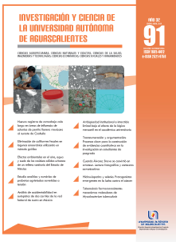Transnumeration and argumentation: Key processes for the construction of quantitative-research evidences in postgraduate students
DOI:
https://doi.org/10.33064/iycuaa2024914323Keywords:
Transnumeration, Argumentation, Statistical Analysis, Statistical Reasoning, Higher education, PostgraduateAbstract
The transnumeration is a type of statistical reasoning that considers the most suitable analysis from different perspectives, as well as the representations that communicate the results of a research. The objective of the study is to describe the transnumeration processes carried out by postgraduate students to give meaning to the obtained data and to build the arguments that support their research/thesis’ objectives. The results of task-based interviews carried out with 14 postgraduate students from the areas of social and administrative sciences are shown, in which different transnumerative strategies and types of arguments offered by the students are explored. The results show that the transnumeration allowed to reassess the nature of the variables considered in their analysis and their transformation possibilities.
Downloads
References
• Alonso-Arroyo, A., Spotti, M., Gil-Leiva, I., y Pandiella, A. (2016). Protocolo Verbal: análisis de la producción científica, 1941-2013. Informação & Sociedade. 26(2), 61-76. https://periodicos.ufpb.br/ojs2/index.php/ies/article/view/28182/16205
• Alvarez, J.E. (2021). Comprensión del concepto distribución estadística en estudiantes de psicología en una universidad pública [Tesis de maestría no publicada], Universidad Autónoma de Aguascalientes.
• Bañales, G., Vega, N.A., Reyna, A., Pérez, E.G., y Rodríguez, B. S. (2014). La argumentación escrita en las disciplinas: retos de alfabetización de los estudiantes universitarios. Revista Internacional de Ciencias Sociales y Humanidades. SOCIOTAM, XXIV(2), 29-52.
• Bañales, G., Vega, N. A., Araujo, N., Reyna, A., y Rodríguez, B. S. (2015). La enseñanza de la argumentación escrita en la universidad. Una experiencia de intervención con estudiantes de Lingüística Aplicada. Revista Mexicana de Investigación Educativa, 20(66), 879-910.
• Bañales, G., y Vega, N.A. (2016). La enseñanza estratégica de la argumentación escrita en las disciplinas: desafíos para los docentes universitarios. En G. Bañales, M. Castelló, y N.A. Vega (Eds.), Enseñar a leer y escribir en la educación superior. Propuestas educativas basadas en la investigación (pp. 101-127). Serie: Lenguaje, Educación e Innovación (LEI). México: Universidad Autónoma de Tamaulipas, Fundación SM, CEIdea, http://web.metro.inter.edu/facultad/esthumanisticos/crem_docs/Ensenar%20a%20leer%20y%20escribir.pdf
• Berndt, M., Schmidt, F.M., Sailer, M., Fischer, F., Fischer, M.R., & Zottmann, J.M. (2021). Investigating statistical literacy and scientific reasoning & argumentation in medical, social sciences, and economics students. Learning and Individual Differences, 86(2), 1-9, https://doi.org/10.1016/j.lindif.2020.101963 DOI: https://doi.org/10.1016/j.lindif.2020.101963
• Burrill, G. y Biehler, R. (2011). Fundamental Statistical Ideas in the School Curriculum and in Training Teachers. En C. Batanero, G. Burril, y C. Reading (Eds.), Teaching Statistics in School Mathematics-Challenges for Teaching and Teacher Education: A Joint ICMI/IASE Study (57-69). Dordrecht: Springer DOI: https://doi.org/10.1007/978-94-007-1131-0_10
• Cazorla, I. M., Cardoso, M., Ferreira, C.E., (2021). Dos dados brutos à informação: o papel das técnicas transnumerativas no ensino de Estatística. Educação Matemática Pesquisa, 23(4), 109-139. https://doi.org/10.23925/983-3156.2021v23i4p109-139 DOI: https://doi.org/10.23925/983-3156.2021v23i4p109-139
• Chick, H. L. (2004). Tools for transnumeration: Early stages in the art of data representation. En I. Putt, R. Faragher, y M. Mc Lead (Eds.), Mathematics education for the third millennium: Towards 2010, Proceedings of the twenty-seventh Annual Conference of the Mathematics Education Research Group of Australasia, 167-174. Sydney: MERGA https://www.merga.net.au/documents/RP182004.pdf
• Chick, H. L., Pfannkuch, M., y Watson, J.M. (2005). Transnumerative thinking: finding and telling stories within data. Curriculum Matters, 1, 86-108. DOI: https://doi.org/10.18296/cm.0063
• Del-Callejo-Canal, D., Canal-Martínez, M. & Hákim-Krayem, M.R. (2020). Desarrollo del pensamiento estadístico en estudiantes de nivel superior a través de una Experiencia Educativa. Educación Matemática, 32(2), 194–216. https://doi.org/10.24844/EM3202.08 DOI: https://doi.org/10.24844/EM3202.08
• Dieser, M. (2017). Estadísticas en acción. Una propuesta de enseñanza y aprendizaje de la estadística revisitada desde la teoría de la cognición situada y una perspectiva constructivista del aprendizaje. UNIÓN. Revista Iberoamericana de Educación Matemática, 13 (51), 164-183.
• Inzunza, S. (2017). Potencial de los proyectos para desarrollar motivación, competencias de razonamiento y pensamiento estadístico. Revista Actualidades Investigativas en Educación, 17 (3), 1–30. https://doi.org/10.15517/AIE.V17I3.29874 DOI: https://doi.org/10.15517/aie.v17i3.29874
• Maher, C. A. y Sigley, R. (2014). Task-Based Interviews in Mathematics Education. En S. Lerman (Ed.), Encyclopedia of Mathematics Education (pp. 579-582). Dordrecht: Springer. https://doi.org/10.1007/978-94-007-4978-8_147 DOI: https://doi.org/10.1007/978-94-007-4978-8_147
• Padilla, C. (2020). Enseñar y aprender a argumentar a lo largo de la escolaridad: desafíos actitudinales, epistémicos, colaborativos y situados. Revista Iberoamericana de Argumentación, 20, 7-29. http://doi.org/10.15366/ria2020.20.001 DOI: https://doi.org/10.15366/ria2020.20.001
• Romano, M.B. (2020). Argumentar en la universidad: representaciones estudiantiles, retos y perspectivas. Revista Iberoamericana de Argumentación, 20, 206-227. DOI: https://doi.org/10.15366/ria2020.20.010
• Simons, H. (2009). El estudio de caso: teoría y práctica. España: Morata.
• Torres, R.A., Ochoa, M.G., La Rosa, D., y García, A.B. (2018). Las competencias argumentativas en la formación universitaria. INNOVA Research Journal, 3(1), 30-41. DOI: https://doi.org/10.33890/innova.v3.n1.2018.336
• Wild, C.J., y Pfannkuch, M. (1999). Statistics Thinking in Empirical Enquiry. International Statistical Review, 67(3), 223-265. DOI: https://doi.org/10.2307/1403699
Published
How to Cite
License
Copyright (c) 2024 Daniel Eudave-Muñoz, David Alfonso-Páez , Ana Cecilia Macías-Esparza , Martha Cinthia García-Gaytán, Lucía Magdalena Rodríguez-Ponce

This work is licensed under a Creative Commons Attribution-NonCommercial-ShareAlike 4.0 International License.
Las obras publicadas en versión electrónica de la revista están bajo la licencia Creative Commons Atribución-NoComercial-CompartirIgual 4.0 Internacional (CC BY-NC-SA 4.0)









